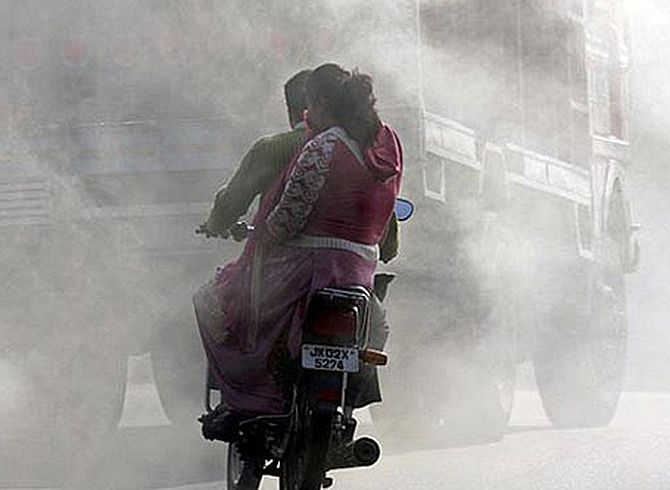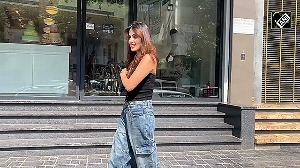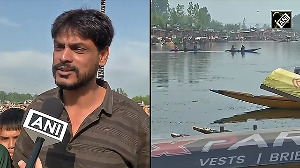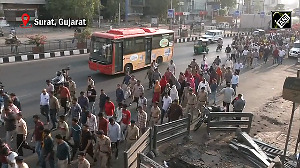
Dear Mr Kejriwal,
I am sure you have plenty on your plate but even as you grapple with how to implement the odd-even vehicle number idea — worth a try in my view — in a city with 8.8 million registered vehicles, I have a few practical suggestions that can be carried out with minimal effort.
Start a visible campaign across the city that tells people how much it adds to pollution each time they take their vehicle out.
The numbers, the data, the statistics on hoardings all over the city will make people more aware and conscious.
Several vehicle owners don’t even think about such things. Hoardings that scream out the facts might goad some —a few I agree, but a few is better than none — into thinking twice.
Fix the signage in Delhi and NCR. Just like aircraft that circle in the air due to congestion at the airport, a number of cars circle in the city due to poor signage.
People who drive their vehicles themselves will confirm what I am saying. I’ll cite two examples.
I have missed the turning towards the old (T1) airport terminal and headed off towards Dwarka at least three times. To return towards the airport means a detour of almost two kilometres once the mistake has been made but I find I am never alone.
There are several drivers who have missed the signage — which is both tiny and appears awfully late —while grappling with high-speed traffic on the highway.
A second instance. Try to get out of Delhi University and head towards ITO, the U-turn is essentially unmarked.
Poor lighting makes it impossible to read the signage. Most commuters miss the turn and have to circle another couple of kilometres before they find their way.
This may not occur to those who are being driven. It’s keeping your eyes on the road to read signs while navigating heavy and often high-speed traffic that does it.
Cars are circling and effectively spend more time on the roads than they need to — simply because directions are unmarked or draw the driver’s attention too late.
Shift the bus stops. Bus stops in the city are often located either just after a traffic intersection or strategically just after a turn — ensuring that traffic is blocked just as soon as it gets going.
The lights at intersections change, traffic starts moving and then slows down as buses start moving to the left to stop at the bus stop.
Speaking for Gurgaon where I live, the biggest blockade is at the IFFCO Chowk: as soon as one turns off the highway, there is a stop with benches that blocks all traffic — leading to long, agonising jams.
Since the road and highways minister Nitin Gadkari himself experienced one of Gurgaon’s famous traffic snarls the other day — although sadly not in its full glory — I am sure some of you have become more aware of the menace.
We can no longer afford to allow trade and commerce to flourish on main roads. While the courts have intervened in the matter in the past but yet again all over the city one finds shops on both sides of the road that infringe into the space available for cars. Car owners stop and even park their cars just outside the shops.
Auto-rickshaws and other public transport line the road on both sides —often parked where they shouldn’t be. Impose stiff penalties for violators.
Wedding venues. If we can’t ban weddings altogether, can we do something to ensure that these venues don’t proliferate on the highways, where they seem to be concentrated? Gurgaon’s NH8 is a nightmare to traverse during the wedding season but this is by no means restricted to this side alone.
Head towards east or west Delhi and there is a profusion of wedding venues all along the main roads.
Grooms on horses, dancers and bands all jostle for space with daily commuters, trucks and auto-rickshaws.
It is just the miracle that is India that prevents more accidents from happening. Anywhere else in the world and you’d have cars ramming into revellers.
Of course, I can list the usual. Control truck traffic that doesn’t absolutely need to come into Delhi. Add to Metro mileage on a war footing.
This may be rather long term but explore setting up new urban centres. Imagine what Delhi would be if Noida and Gurgaon had not happened.
Best wishes.







 © 2025
© 2025